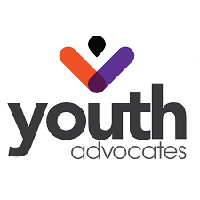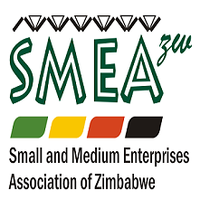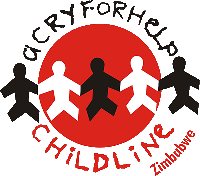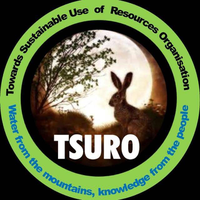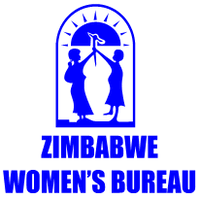TERMS OF REFERENCE 393 Youth Helpline Case Management Framework and Referral protocols development And Development of Education based Child Protection Referral Pathways Consultancy Break the Outbreak,
Consultancy, Research Jobs
- Youth Advocates Zimbabwe
- Expires 29 Feb 2024
- Harare
- Full Time
Job Description
BACKGROUND
Youth Advocates is a youth-led organisation working to advance youth rights and amplify their voices where it matters. With a mission of empowering adolescents and young people through knowledge and skills transfer, Youth Advocates continues building on extensive experience leading youth driven projects within the development field, ideally pioneering innovative technology in youth-centered programs partnering with the local communities. Operating in 5 countries across East and Southern Africa (Zambia, Malawi, Kenya, Botswana, and Zimbabwe), Youth Advocates comprehensively addresses the complex behavioral, social, and structural drivers of risk tolerance among young people through combining technology, nationwide multimedia campaign with systems strengthening, community-level outreach, and clinical and psycho-social services. Youth Advocates’ rights-based approach involves increasing access to quality youth friendly services and providing comprehensive gender-sensitive, sexuality education, promoting and preserving human dignity. It uses technology and grassroots initiatives to empower children and youth, claiming respect for fundamental freedoms and rights; improved conditions for young people and their communities; opportunities to learn, work and participate in decisions that affect them.
The first cholera outbreak in the country in 2023 started on February 12, 2023, in Chegutu town, Mashonaland West Province. The outbreak has spread due to (1) poor hygiene practices, (2) unsupervised gatherings and funerals, (3) high usage of unsafe or unprotected sources of water for drinking and domestic use, (4) low national sanitation coverage with 40 percent open defecation (Zimbabwe 2022 Population and Housing Census Report) and (5) low safe-water coverage, which is just 35 percent. This outbreak continued to persist from the dry season into the current rainy season, increasing the risk of the disease spreading. The country is struggling to contain the spread of the cholera outbreak and has announced various measures amid fears of a repeat of the 2008 outbreak which resulted in over 4 200 deaths.
Communities continue to demonstrate a need for knowledge regarding preventive alternatives for the disease and how to support affected individuals, resulting in generalised stigmatisation of those affected. Some groups, especially in parts of Harare, Masvingo, and Chitungwiza, are the most at-risk communities due to poor hygiene practices and religious practices, to name but a few. Schools are the most common site for cholera outbreaks due to their high population density and close contact between students.
Youth Advocates with funding support from UNICEF is implementing a social behaviour change communication project that is aimed at supporting schools in developing and implementing Risk Communication and Community Engagement (RCCE) action plans and promote online engagement on the Disaster Risk Management and Resilience (DRMR) course designed by the Ministry of Primary and Secondary Education. The project will use innovative approaches and multimedia to establish learner-led cholera prevention initiatives based on the Disaster Risk Management and Resilience (DRMR) plan for education. Priority focus will include enhancing good hygiene and sanitation practices, monitoring hazards plus access to clean and safe water and proper sanitation facilities
Duties and Responsibilities
Background of the 393 Youth Helpline
OBJECTIVES OF THE HELPLINE
• COUNSELING SERVICE
The 393 Youth Helpline is a nationally recognized Call Centre that uses Calls, SMS, social media and aggregated feedback to interact and respond to health and well-being needs of adolescents and young people across Zimbabwe. The Youth Helpline model has proven to be an effective and efficient mechanism in reaching out to young people with vital SRH/HIV/SGBV/MHPSS information and counselling services.
Providing on-going
• The REFFERAL component is designed to enable individuals to maneuver through the complex network of various service including Social Services, service providers and access to necessary information, care and support services they need.
Purpose and Objectives
1. 393 YOUTH HELPLINE CASE MANAGEMENT FRAMEWORK AND RFERRAL PROTOCOLS
, the helpline is designed to create an enabling
environment for its callers to seek services, manage stress, find ongoing support through individualized counselling to realize their overall emotional well-being. Whilst integrating issues on
mental health and well-being support.
• Dissemination of INFORMATION through the Helpline equips individuals with the up to date accurate and verifiable information.
The overall objective of this consultancy is to develop a case management and referral system for the 393 Youth Helpline to improve the well-being of young people.
Specific objectives include:
• To review the current operations and procedures of the Youth Helpline.
• To map out the existing psychosocial support services available for young people in Zimbabwe
• To develop a case management framework for the Youth Helpline.
• To develop referral pathways for different categories of issues presented by young people.
• To identify and recommend appropriate tools and resources for the case management and referral
system.
• To develop a training curriculum for helpline staff on case management and referral processes.
Methodology
• The consultancy will involve a desk review of relevant documents, interviews with key stakeholders, mapping of existing services, and interactions with the Youth Helpline team to develop the case
management and referral system. The consultant will also conduct a training needs assessment to inform the development of the training curriculum.
Deliverables
The consultant is expected to deliver the following:
A comprehensive report on the desk review, mapping of services, and gap analysis. A case management and referral system framework for the Youth Helpline.
A training curriculum on case management and referral processes.
Qualifications and Experience
Qualifications and Experience
The consultant(s) should possess the following qualifications and experience:
• A degree in social work, psychology, or a related field.
• At least 5 years of experience in developing case management and referral systems for youth- focused programs.
• Strong understanding and experience in psychosocial support services for young people.
• Excellent research, writing, and communication skills.
• Experience working with Helplines or similar services is an added advantage.
2. Development of Education based Child Protection Referral pathways. Background
Child protection is crucial for the development and well-being of children. Education is an essential component of child protection as it provides a safe and nurturing environment, access to information and skills, and opportunities for social and emotional development. However, children can face various risks and threats to their safety and well-being within educational settings, including abuse, neglect, exploitation, and violence. To address these risks, it is vital to have a well-defined and effective child protection referral pathway in place.
Purpose
The purpose of this consultancy is to support the development of an education-based child protection referral pathway. The consultant will work with a team of experts from the education and child protection sectors to develop a comprehensive and practical referral pathway that can be implemented in various educational settings.
Objectives
The objectives of this consultancy are to:
• Conduct a thorough review of existing child protection policies, procedures, and referral mechanisms in the education sector.
• Identify gaps and challenges in the current child protection referral system in educational settings.
• Consult with key stakeholders, including government agencies, NGOs, schools, and communities,
to gather their perspectives and recommendations for a child protection referral pathway.
• Develop a comprehensive and practical child protection referral pathway that considers the specific needs and contexts of different educational settings.
• Develop guidelines and tools to support the implementation of the referral pathway.
• Provide recommendations for the integration and sustainability of the referral pathway within the existing child protection systems.
Scope of Work
The consultant will be responsible for:
• Reviewing relevant literature, policies, and guidelines related to child protection in the education sector.
• Conducting online consultations and interviews with key stakeholders, including government agencies, NGOs, schools, and communities.
• Developing a child protection referral pathway and guidelines for implementation.
• Developing a brief report that includes findings, recommendations, and the final referral pathway
and guidelines.
Deliverables
a. An inception report outlining the consultant's understanding of the task and the proposed methodology. d. Produce a child protection referral pathway and guidelines for implementation.
e. A brief report summarizing the findings, recommendations, and the final referral pathway and guidelines.
Qualifications and Experience
The consultant should possess the following qualifications and experience:
• A degree in social sciences, education, child protection, or a related field.
• A minimum of 5 years of experience in child protection, education, and referral systems.
• Proven experience in developing child protection policies, procedures, and referral systems.
• Strong understanding and knowledge of child protection issues, particularly in the education sector.
• Excellent analytical and report writing skills.

